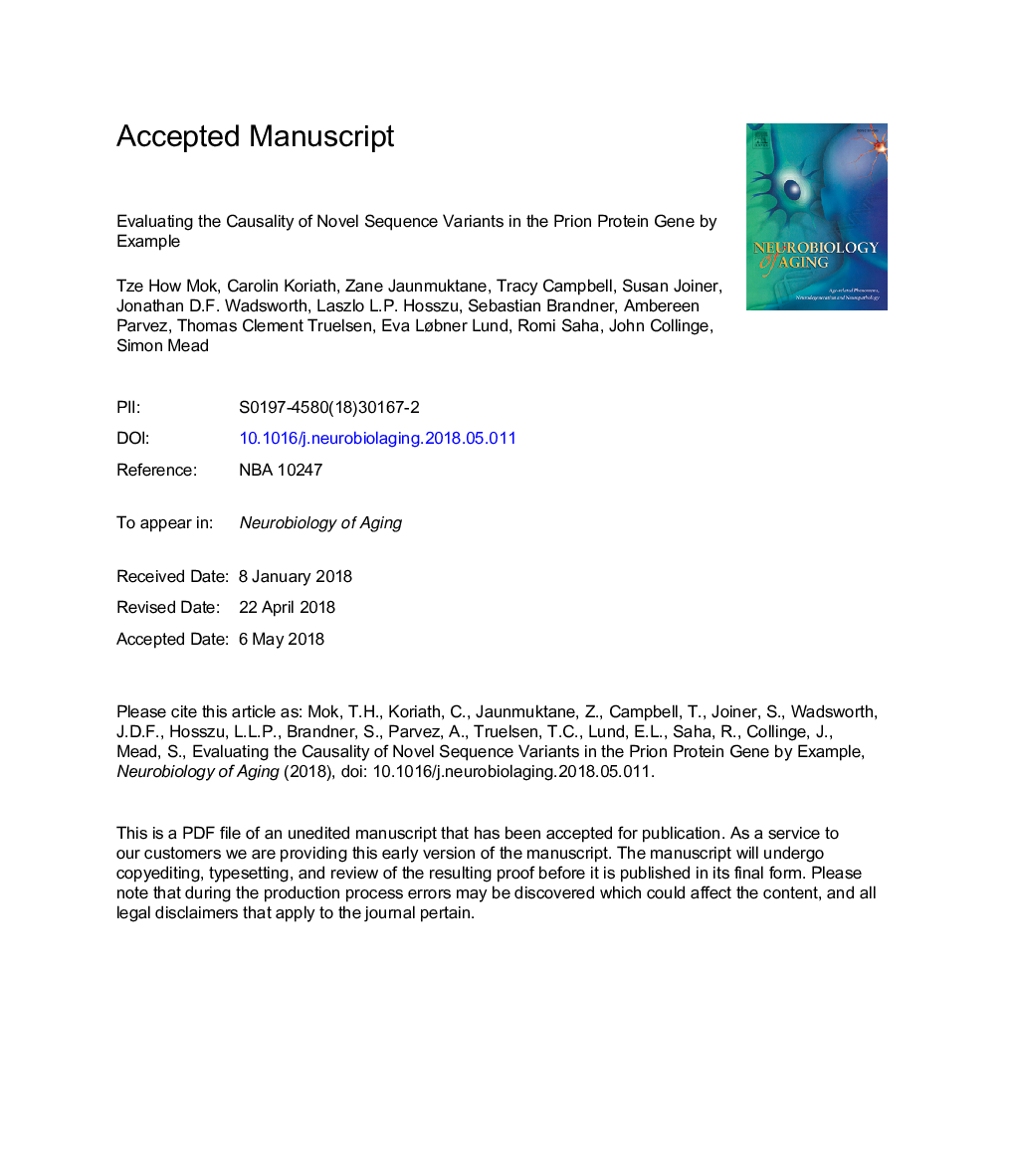| Article ID | Journal | Published Year | Pages | File Type |
|---|---|---|---|---|
| 11002004 | Neurobiology of Aging | 2018 | 18 Pages |
Abstract
The estimation of pathogenicity and penetrance of novel prion protein gene (PRNP) variants presents significant challenges, particularly in the absence of family history, which precludes the application of Mendelian segregation. Moreover, the ambiguities of prion disease pathophysiology renders conventional in silico predictions inconclusive. Here, we describe 2 patients with rapid cognitive decline progressing to akinetic mutism and death within 10Â weeks of symptom onset, both of whom possessed the novel T201S variant in PRNP. Clinically, both satisfied diagnostic criteria for probable sporadic Creutzfeldt-Jakob disease and in one, the diagnosis was confirmed by neuropathology. While computational analyses predicted that T201S was possibly deleterious, molecular strain typing, prion protein structural considerations, and calculations leveraging large-scale population data (gnomAD) indicate that T201S is at best either of low penetrance or nonpathogenic. Thus, we illustrate the utility of harnessing multiple lines of prion disease-specific evidence in the evaluation of the T201S variant, which may be similarly applied to assess other novel variants in PRNP.
Related Topics
Life Sciences
Biochemistry, Genetics and Molecular Biology
Ageing
Authors
Tze How Mok, Carolin Koriath, Zane Jaunmuktane, Tracy Campbell, Susan Joiner, Jonathan D.F. Wadsworth, Laszlo L.P. Hosszu, Sebastian Brandner, Ambereen Parvez, Thomas Clement Truelsen, Eva Løbner Lund, Romi Saha, John Collinge, Simon Mead,
